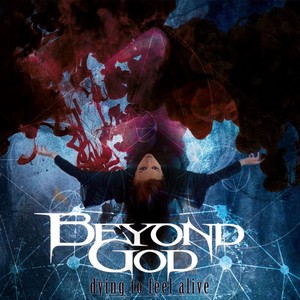Perhaps it’s just a personal perspective, but seeing a name like Beyond God tends to bring to mind something that’s more brutal and death metal-like. So some may be a bit surprised to hear that Beyond God are a symphonic metal act from The Netherlands. Those looking for something a bit heavier than the genre-standard though, will surely find it with Dying to Feel Alive. But that’s not all the band has to offer as a whole.
The heavier, and sometimes more aggressive riffing structures are certainly a part of the appeal to Beyond God, but what is most striking when listening to the entire album is just how well balanced it is. This includes the orchestrations as well. It feels like they are built in from the ground up, instead of just piecing things together and having them riddle the landscape. The integration is seamless, allowing for a solid contrast between the heavier riffing patterns and the symphonic backdrop. Tracks like “No Other Way” and “Stronger” do a good job of exemplifying this quality, with catchy and headbangable riffs coupling with interesting orchestral arrangements helping to strengthen their melodic core.
Another breath of fresh air comes in the form of the atmosphere of the music. While it’s undeniably catchy material, it never goes for the quick, poppy vibe. Instead, there’s a feeling of melancholy that saturates much of the material, from darker songs like “Shade and Light” to more classically influenced pieces like the title track. Some of this sorrow resonates from vocalist Meryl Foreman, who brings an ethereal quality to the music. She can provide power when it’s called for (“The Collector”) as well as poignancy (“All in All”). The album’s finest moment is saved for last, with the epic “This Inner Fight,” where Foreman trades lines with John ‘Jaycee’ Cuijpers, over a gradually building landscape that feels almost like a storytale, complete with a gentle piano conclusion.
In a land of increasing generic symphonic metal bands, Beyond God finds a way to stand out in the crowd. The orchestration and string integration alone is worth a look, and the darker and melancholic approach solidifies the act as one with some true potential moving forward. Dying to Feel Alive is a certified sleeper hit.


